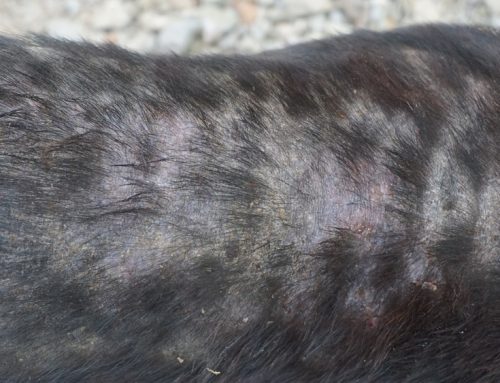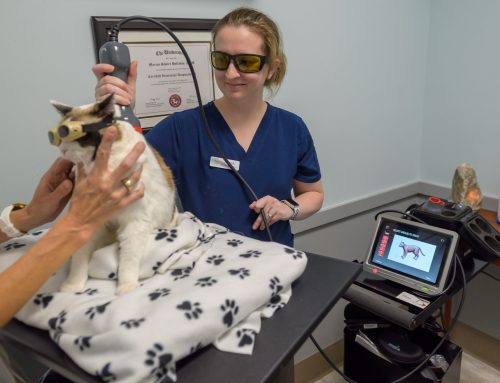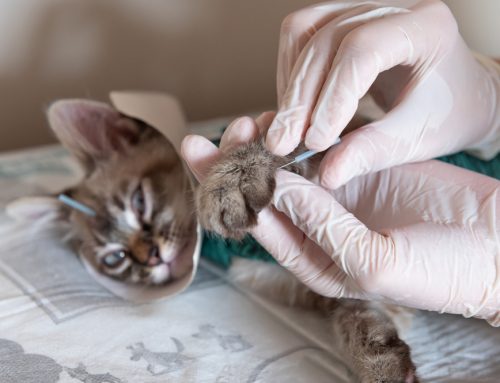Fleas and ticks are more than nuisances for pets—they can also transmit diseases and cause significant discomfort. Understanding parasite dangers and how to prevent infestations effectively is crucial to your pet’s overall well-being. To help pet owners safeguard their furry pals from this common enemy, the Central Houston Animal Hospital team answers frequently asked flea and tick questions.
Question: What are fleas, and why are they harmful to pets?
Answer: Fleas are blood-sucking parasites that live and reproduce on pets and other animals, but their eggs can fall off your pet and contaminate your home environment, where they are challenging to eliminate. Flea bites can cause severe allergic skin reactions and transmit some diseases, such as cat scratch fever (i.e., bartonellosis) or tapeworms.
Q: What are ticks, and why are they harmful to pets?
A: Ticks mostly live freely but must take a blood meal to molt or lay eggs. Ticks that bite pets can attach for several days and transmit diseases, including Lyme disease, ehrlichiosis, Rocky Mountain spotted fever, and anaplasmosis. These serious tick-borne diseases can cause fever, lethargy, blood disorders, lameness, eye inflammation, or organ failure.
Q: How can I prevent fleas and ticks from infesting my pet?
A: Effective flea and tick prevention is crucial to your pet’s health. Fortunately, preventive products available from our veterinary team can provide long-lasting protection—up to three months with each dose. Other strategies include avoiding wooded or grassy areas, cleaning up leaf litter in your yard, avoiding areas frequented by wildlife, and keeping your lawn trimmed short.
Q: What kind of preventive should I use for my pet?
A: Preventives come in various forms, including topical spot-on treatments, oral medications, collars, shampoos, and sprays. Sprays and shampoos are generally effective for only a few hours and must be frequently re-applied. Topicals and oral medications are the gold standard for flea and tick treatment, but you must choose products based on our veterinary team’s recommendations. Never apply dog products to a cat, and avoid purchasing generic store brand products that may have lower safety or efficacy.
Q: Are natural remedies effective for flea and tick prevention?
A: The effectiveness of natural, chemical-free remedies for fleas and ticks varies. Natural remedies must also be re-applied daily, like medicated anti-parasite shampoos or sprays. Natural flea or tick products are best used as an adjunct to veterinarian-recommended products. Use products created specifically for pets and do not use a DIY parasite prevention recipe.
Q: How do I know if my pet has fleas or ticks?

A: External parasites can cause itching, skin irritation, or hair loss, and you may also see them on your pet’s body. Adult ticks are easily identified on short-haired pets, although the immature nymph stage is harder to find. Fleas are tiny and move quickly to hide in your pet’s fur, so are difficult to see on longer-haired pets, although you can find flea “dirt” (i.e., flea droppings) by running a fine-toothed comb through the fur on your pet’s back—reddish-brown specks are a hallmark sign.
Q: Can fleas and ticks affect humans?
A: Yes, fleas and ticks can bite humans and transmit many of the same diseases that affect pets. However, fleas do not infest humans, because our hair is not the kind that they prefer. Protecting your pet from parasites with prevention medication products can help you avoid contact with fleas or ticks that hitch a ride into your home on your pet.
Preventing flea and tick infestations is vital for protecting your pet’s health. Using preventives recommended by our Central Houston Animal Hospital team can help you safeguard your furry pal from these pesky parasites and the diseases they carry. Contact us to schedule a wellness visit for your pet and to choose the parasite preventive that best meets your pet’s needs.







Leave A Comment